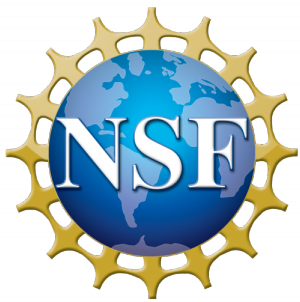August 1st, 2019 - July 31st, 2020 | PROJECT
The Teen Science Cafe Network is an adaptation for teens, of the popular adult science cafe model, which brings people together in a social setting to have an animated conversation with a scientist on some interesting and timely topic. Since its inception in 2012, the Network has grown at a rapid rate: it is now in 130 sites in 45 states, the District of Columbia, and British Columbia. Multiple evaluations have documented its impact. Teens are shown to have increased STEM literacy, a more realistic picture of scientists as real people leading interesting lives, and a better understanding of the nature of science. This two-and-a-half-day conference is designed to review the state of this model of teen engagement in science and science communication. Participants will examine lessons learned from this and similar networks to consider the features needed to expand this model to other audiences (e.g., rural teens, teenage college students, teenagers on military bases, and teens served by local chapters of professional societies based on ethnicity and gender).
Leaders of the Teen Science Cafe Network, along with an advisory committee comprised of individuals who are successfully managing networks, will explore these fundamental questions: 1) How can the field best take advantage of this large and growing network? 2) How can the current community of practice be leveraged for growth? 3) What are some of the most effective strategies for achieving and maintaining effective, long-term partnerships with organizations such as 4-H, science centers, networks of afterschool providers, science festivals, professional societies, and libraries? 4) What are possible outcomes for promoting discipline-specific cafes in areas such as ocean science, astrophysics, geoscience, and polar science? Outputs from the conference include a refined set of guiding principles for the current network and a white paper describing the features of strong and effective networks and recommendations for scaling.
This project is funded by the National Science Foundation's (NSF's) Advancing Informal STEM Learning (AISL) program, which supports innovative research, approaches, and resources for use in a variety of learning settings.
Project Website(s)
(no project website provided)
Team Members
Michelle Hall, Principal Investigator, Science Education Solutions IncJanice Mokros, Co-Principal Investigator
Michael Mayhew, Co-Principal Investigator
Funders
Funding Source: NSF
Funding Program: Advancing Informal STEM Learning (AISL)
Award Number: 1935576
Funding Amount: $73,602
Tags
Access and Inclusion: Rural
Audience: Educators | Teachers | Museum | ISE Professionals | Scientists | Undergraduate | Graduate Students | Youth | Teen (up to 17)
Discipline: General STEM
Resource Type: Project Descriptions | Projects
Environment Type: Professional Development | Conferences | Networks | Professional Development and Workshops

